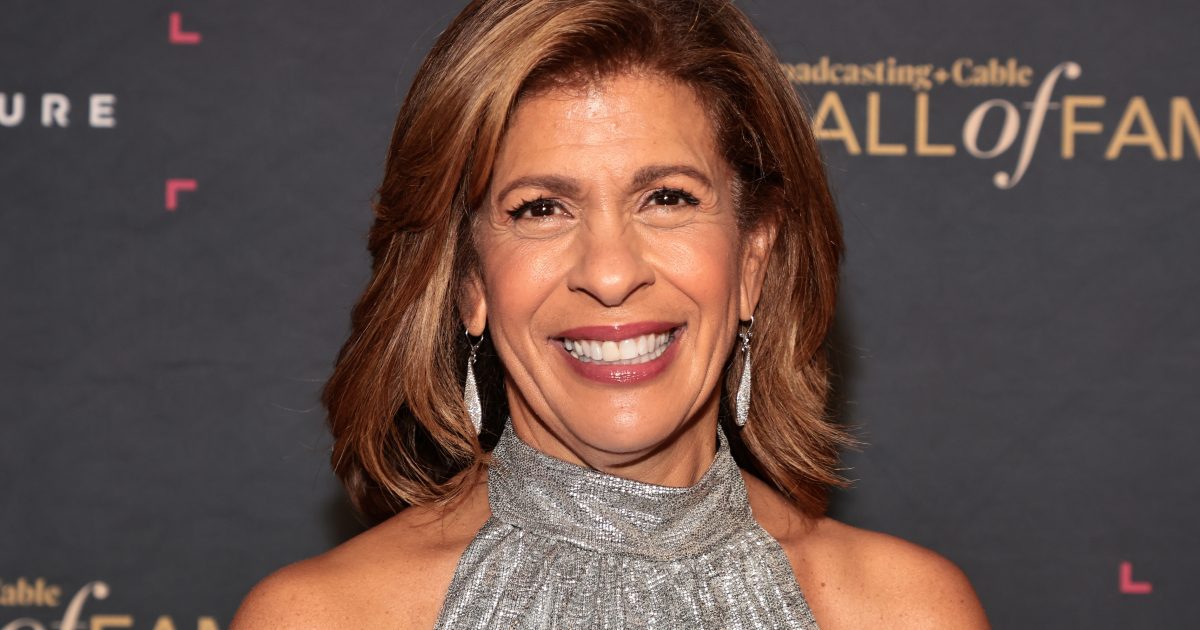She Became a Mother After Breast Cancer at 52
- News personality and proud mother, Hoda Kotb, 57, has been sharing more intimate moments at home with her followers lately, and it’s nice to see this even more nurturing side of the congenial, fun-loving host.
- The breast cancer survivor was initially devastated at the effects of treatment on her fertility, but then chose to go the adoption route nearly a decade later with her partner at the time.
- There are always other options when it comes to wanting to be a mother, but it's important to learn about fertility preservation just in case.
The Today co-host shared a sweet photo with daughters Haley, 5, and Hope, 3, sitting at the table with crafts and kids’ lunches in front of them, wearing matching dresses.
Read MoreView this post on Instagram
Likely an emotional day, Kotb just spent her first Mother's Day as a single mother, recently announcing that she split with the girls' dad, her longtime fiancé, financier Joel Schiffman, 64. The couple adopted both Haley and Hope after Kotb, at 52, decided she wanted to become a mom.
Luckily, Kotb has the support from her own mother, Semaha Kotb, who posed in another pic with her granddaughters, which was also shared to Instagram.
View this post on Instagram
Hoda Kotb's Journey to Motherhood
Kotb received her breast cancer diagnosis in February 2007 after doctors discovered lumps in her breast tissue during a routine exam. She was 43 at the time and underwent a mastectomy and reconstruction followed by five years taking the drug tamoxifen (Nolvadex). Kotb was devastated when her oncologist explained the realities of her fertility after breast cancer treatment. But like many other cancer survivors, she found her own way to parenthood.
In a recent conversation with Good Housekeeping, Kotb opened up about her fertility struggles after her battle with breast cancer.
"I remember that my oncologist called, and we were talking about freezing my eggs," Kotb said. "She basically said that given my age and (my breast cancer treatment), it was pretty close to a dead-end."
Can I Have a Baby After Breast Cancer?
Her reaction was, understandably, filled with sorrow. And at that moment, she doubted she'd ever realize her dream of becoming a mother.
"I was in my room, and I just sobbed. I thought, 'Well, that's that, isn't it?,'" Kotb said. "Like, you almost blame yourself. 'Why didn't I do this? Why didn't I do that?' So I just pushed it away because the reality seemed impossible to bear. She thanks her ex, Schiffman, for providing the support she needed to become a mother.
"I don't think I would've adopted if it hadn't been for Joel," she said of Schiffman. "Having a stable relationship in that moment was really important. Once that fell into place, it didn't seem as scary to me."
Fertility and Cancer Treatment
Infertility can be a side effect of some cancer treatments, but there are options to consider. Fertility preservation, for example, is available to women of childbearing age. Options for women include:
- Egg and embryo freezing (the most common practice)
- Ovarian tissue freezing
- Ovarian suppression to prevent the eggs from maturing so that they cannot be damaged during treatment.
- Ovarian transposition, for women getting radiation to the pelvis, to move the ovaries out of the line of treatment.
Dr. Terri Woodard discusses fertility options after a cancer diagnosis
No matter what course of action you choose to take, it is important that all women feel comfortable discussing their options prior to cancer treatment.
In a previous conversation with SurvivorNet, Dr. Jaime Knopman, a reproductive endocrinologist at CCRM NY, says time is precious when dealing with fertility preservation for women with cancer. In other words, the sooner the better when it comes to having these important fertility conversations with your doctor.
"The sooner we start, the sooner that patient can then go on and do their treatment," Dr. Knopman said. "A lot of the success comes down to how old you are at the time you froze and the quality of the lab in which your eggs or embryos are frozen in."
Related: Freezing Eggs Or Embryos: What Should I Do?
When it comes to breast cancer patients specifically, there are some unique challenges for women with the disease. Dr. Elizabeth Comen, a medical oncologist at Memorial Sloan Kettering Cancer Center, outlines them in a previous interview with SurvivorNet:
Young women who need chemotherapy could have their fertility significantly affected because many chemotherapy drugs can damage a woman's eggs.
If women are on a medication to stop the hormones which feed their specific kind of breast cancer, they may not be able to get pregnant for several yearsin some instances 10 years.
Many stage four breast cancers need estrogen to grow. Pregnancy is a very, very high hormonal state, so it's not recommended in these cases, however, it's important to do whatever feels right to you. Discussing these options with your care team will help you come to the right decision for you.
Contributing by SurvivorNet staff.
Learn more about SurvivorNet's rigorous medical review process.

